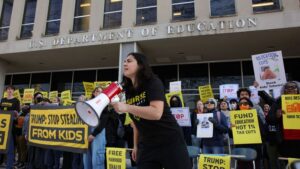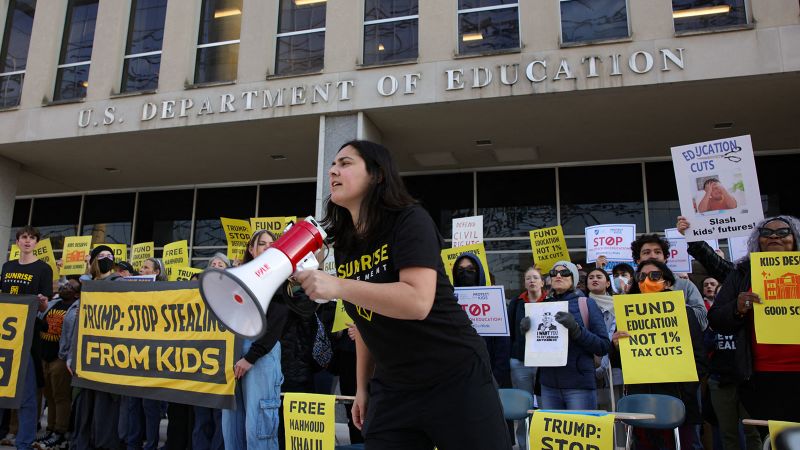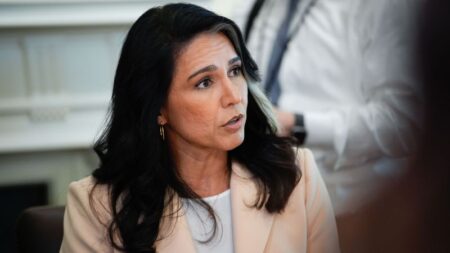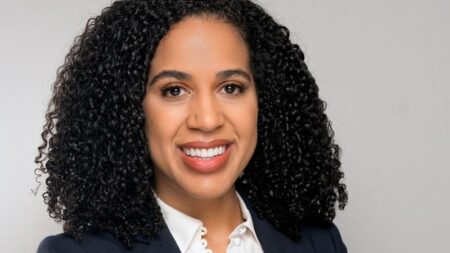The emotional turmoil of families relying on educational support programs is poignantly illustrated through the story of Sylvia, a single mother and janitor, who is the primary provider for her family, which includes her ten-year-old son Gabriel and her ailing mother. As she shared her concerns with CNN, the desperation in her voice painted a clear picture of the stakes involved. Sylvia spoke through a translator, and her words were laden with sorrow as she recounted how her son would frequently ask her why she was crying. For Sylvia, the answer lay in the peril threatening the nonprofit organization, Aspire Afterschool Learning, a program that provides Gabriel with a safe space, warm meals, and education during the summer months.
Aspire Afterschool Learning, located in Arlington, Virginia, is one of over 10,000 similar programs across the United States facing an uncertain future due to sudden federal funding cuts enacted by the Department of Education. The program relies heavily on grants from the 21st Century Community Learning Centers initiative, which was abruptly frozen, leaving educators scrambling to maintain operations amid the turmoil created by the Trump administration’s review of education funding. This critical funding freeze has left many summer programs struggling to remain viable as education officials contemplate dramatic changes to federal support.
The 21st CCLC program is crucial not just for Aspire, but for numerous educational initiatives dependent on it. It includes vital resources for teacher training, student enrichment, and language programs designed to aid non-English speakers. Programs across the country that cater to the most economically disadvantaged students are now confronted with the prospect of closure, which would deepen the educational disparity faced by countless children. In response to the freeze, two dozen Democratic-led states have united in a lawsuit against the Department of Education, seeking the immediate release of funds that Congress had already approved.
With the impact of the halt already apparent, many educational programs—including those like Aspire—are scrambling to stay open and support the students they serve. Educators are worried that if the funding is not released soon, they will be forced to make difficult decisions regarding enrollment and staffing as the school year progresses. Paula Fynboh, who operates Aspire, emphasized further the emotional toll this situation takes, expressing her determination to keep the program alive through fundraising efforts, even if they are insufficient long-term solutions.
The ramifications of the funding freeze extend beyond immediate concerns. Nonprofit organizations that rely on grants to support educational programming for disadvantaged youth are grappling with financial instability. Underlying this crisis is the perception that federal funds were misappropriated to promote “leftwing” ideologies, a claim made by the White House Office of Management and Budget (OMB). This sweeping accusation has prompted a broader review that many educators and nonprofit leaders deem excessive and inappropriate. Randi Weingarten, president of the American Federation of Teachers union, criticized the freeze, arguing that it does a disservice to children by stymieing the crucial support they require and exacerbating chaotic conditions within schools.
Schools and educational initiatives are bracing for significant impacts this fall as the financial outlook grows bleaker. Without access to these vital grants, districts that serve high-poverty areas will experience disproportionate funding losses, compounding their challenges. According to the New America Foundation, average funding losses per district could amount to $220,289, with poorer districts poised to endure even greater hardships.
Aspire, for example, primarily serves families of color, of which over 90% live below the poverty line. Many of their program attendees are not only engaged in arts and crafts activities but also receiving academic support in a nurturing environment. For students like April and Monserrat, Aspire has become a lifeline, assisting them in learning English and gaining the confidence needed to succeed in school. Their parents, too, find solace in the resources available through organizations like Aspire.
As states intervene legally to unfreeze funds, the fallout from this crisis remains uncertain, and the educational landscape continues to deteriorate. Organizations like the Boys & Girls Club of America also echo these sentiments, warning that the loss of funding could strip thousands of children away from essential support systems. This tumultuous period requires urgency to address the mounting pressures on educational initiatives that serve our youth, especially those in communities most in need. The narrative of Sylvia and other families stands as a testament to the human impact of policy decisions—showing that the quest for educational equity stretches far beyond mere statistics; it resonates within the lives, families, and futures of our children.










